5 Dos and Don'ts for Eating Before Your Next Workout
Some foods fuel your workout, others slow you down.
Updated on September 29, 2022
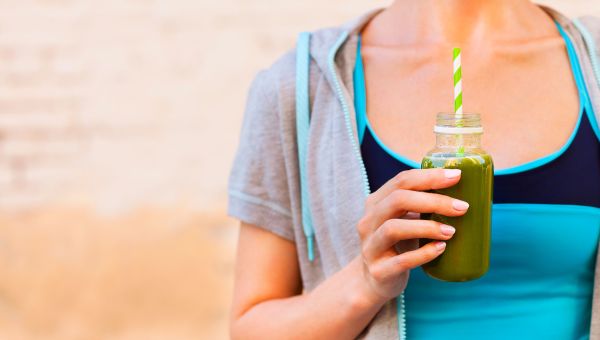
A healthy diet is essential for providing the energy we need to power through daily activities, whether it’s a session in the gym or a long day at the office.
Inadequate nourishment, including lack of essential nutrients like carbohydrates, protein, and healthy fats, can leave you feeling sluggish. But don't be so quick to fill your stomach with just anything. Eating the wrong foods can cause weight gain, in addition to gas, bloating and discomfort—none of which you want to experience at the gym.
It's important to remember: Before you reach for a pre-gym snack, consider the type of workout you're gearing up for. Light or low-intensity workouts, like a 30- to 60-minute walk, don’t require an additional meal or snack. An eating plan that includes a combination of fruits and veggies, lean protein, whole grains, and healthy fats is enough.
Higher-intensity exercise may require some extra fuel. Collette Sinnott, RD, a registered dietitian with MountainView Hospital in Las Vegas, Nevada, breaks down some of the best and worst ways to prepare for your next workout.
And if you're new to exercise, chat with a healthcare provider (HCP) about pre-existing conditions, like diabetes. A good sweat can alter your blood sugar levels, and an HCP will be able to offer the best tips, tricks, and bites for you.
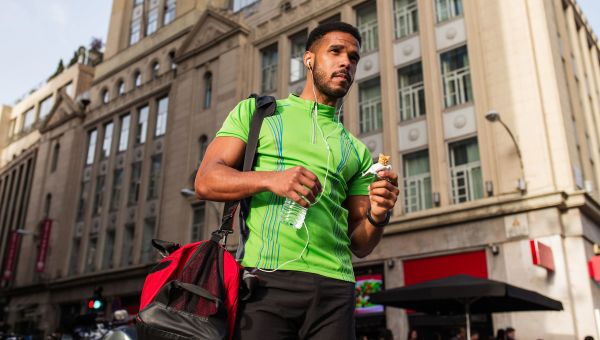
DON'T: Nosh a protein bar
Protein is important; each of our body's cells rely on the nutrient for growth and repair. But it may be best to stay away from protein supplements, like powders and bars, just before a workout.
Compared to carbohydrates—even the complex kind—proteins digest slowly. So, although they may keep you feeling full throughout your session, a high-protein snack won't give you the same energy a carb-heavy one would.
One popular protein bar contains 21 grams of protein, but a measly 4 grams of carbs. There's no specific carbohydrate-to-protein ratio you should be following, but as a general rule, getting enough of the starchy stuff in your daily meals is a good idea.
What fits the bill for a between-meal protein source? A slice or two of turkey breast and a handful of your favorite veggies, like carrots or bell pepper slices.
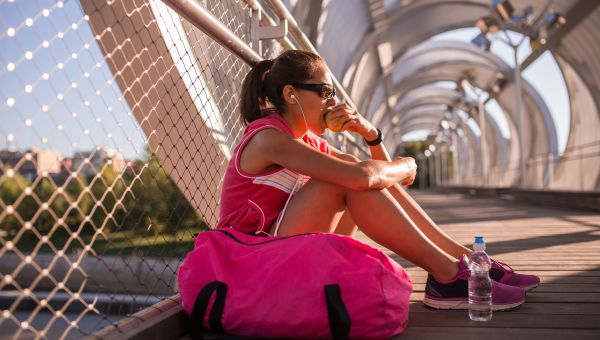
DO: Fuel up with carbohydrates
Carbohydrates are the body's main source of energy, making them good fuel for exercise. But not all carbs are created equal. Complex carbohydrates, like beans and whole grains, break down slowly, releasing a steady flow of energy. Simple carbs, like fruit, give your body rapid energy.
If you're hungry right before a workout, grab a small apple, a source of quick-burning carbs. If you're eating a few hours before the gym, "try to make sure you're including some more complex carbohydrates that have a little bit of fiber, like whole grains," Sinnott says.
Don’t forget to hydrate. According to the National Academy of Medicine, most adults should consume between 88 and 128 ounces of water a day, in the form of food with high water content and liquids. After a tough workout or time spent in the heat, your body may need a bit more.
Staying hydrated is especially important before physical activity. "Make sure that prior to working out, you're hydrating really well," Sinnott says.
But don't overdo it just before. Overhydrating can fill your stomach, making exercise uncomfortable, and can lead to more frequent pitstops. Sipping too much, too quickly can also cause an electrolyte imbalance in the body, called hyponatremia. Exercising for extended periods of time in the heat causes sweating. Overhydrating during these periods with plain water can cause nausea, confusion, and fatigue.
It's always best to hydrate throughout the day, but if it's workout time and you realize you haven't had enough, don't down a whole bottle of water. Instead, take small sips along the way.
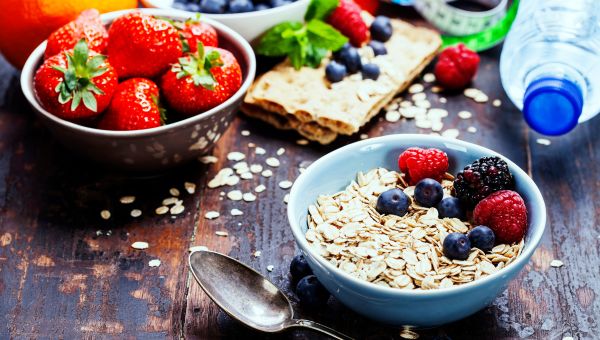
DON'T: Fill up on fiber-rich foods
Fiber has its place in a healthy diet, but if you plan to work out, it may be smart to schedule your intake. National guidelines recommend that men consume between 28 and 34 grams of fiber a day. Women should eat 22 to 28 daily grams. Foods like whole grains, beans, peas and other legumes are high in the nutrient.
Fiber helps regulate blood sugar, keeps bowel movements normal, and may even aid in weight loss and maintenance. Our bodies can’t digest fiber, which helps add bulk to stool and allows it to pass more easily, and it can cause a bit of gastrointestinal discomfort for some.
For this reason, Sinnott recommends avoiding high-fiber foods right before the gym. "I'd recommend avoiding anything too high in fiber within a couple hours of exercise," she says. "If you are going to eat those foods, you may want to eat them a few hours before."
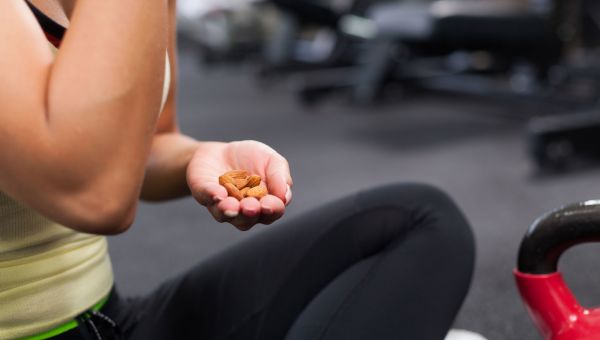
DO: Steer clear of fat
Healthy fats have their benefits, but it may be a good idea to save your servings for your post-workout meal, like lunch after a morning workout, or dinner after an afternoon gym session. "I would definitely recommend avoiding anything really high in fat, [like dairy]," says Sinnott.
Similar to protein, fats, like those found in cheese, yogurt, nuts, and avocado, take time to break down. The body needs energy and oxygen to digest your food, and what's being used to process these fatty foods won’t help power you through your workout. "Because it takes quite a bit of work to digest, a lot of blood flow goes to your gut, instead of your muscles," she says.
That may not be the only reason to avoid fatty eats before getting active. For some, fats can put stress on your digestive system and result in some uncomfortable gas. Keep your energy up and your stomach happy by saying "no" to fatty foods prior to exercise.
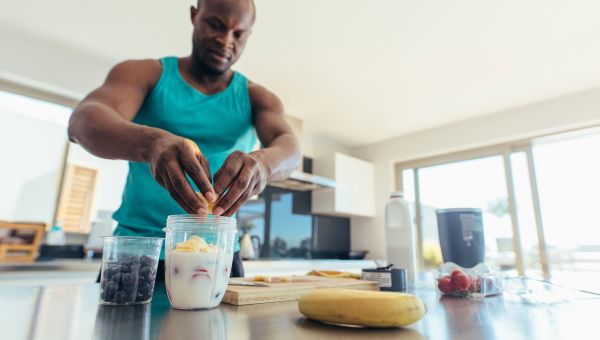
DON'T: Overeat before a workout
"Eating provides adequate fuel for your workout, so you're able to perform to the best of your ability without feeling tired," Sinnott says. A nutritious meal, eaten even a few hours before a workout, can help you sustain energy during a bout of light exercise.
But if you really want a pre-workout snack, be careful not to overdo it. Not only can it slow you down in the gym or on the trail, consuming too many calories, despite exercise, can lead to weight gain.
Everybody has different dietary needs. If you have diabetes or any other medical condition, be sure to talk to a healthcare provider about eating and exercise, since exercise has a serious impact on your body's processes. And if you’re working toward a specific goal, like losing weight, your doctor may be able to provide nutrition tips to help you achieve your desired outcome.

MedlinePlus. Protein in diet. Reviewed June 8, 2021.
Academy of Nutrition and Dietetics. Timing Your Pre- and Post-Workout Nutrition. Reviewed July 2019.
Harvard TH Chan School of Public Health. Protein, carbs, and weight loss. Accessed September 29, 2022.
University of Massachusetts. NIBBLE Directory: Carbohydrates. Accessed September 29, 2022.
American Heart Association. Carbohydrates. Last reviewed April 16, 2018.
Mayo Clinic. Water: How much should you drink every day? October 14, 2020.
Academy of Nutrition and Dietetics. How to Fuel Your Workout. Reviewed October 2020.
Harvard TH Chan School of Public Health. Fiber. Accessed September 29, 2022.
Mayo Clinic. Dietary fiber: Essential for a healthy diet. January 6, 2021.
University of Massachusetts. NIBBLE Directory: Fiber. Accessed September 29, 2022.
NIH: National Institute of Diabetes and Digestive and Kidney Diseases. Symptoms & Causes of Gas in the Digestive Tract. Reviewed June 2021.
American Heart Association. Food as Fuel Before, During, and After Workouts. January 2, 2015.
Chen YC, Travers RL, et al. Feeding influences adipose tissue responses to exercise in overweight men. Endocrinology and Metabolism. July 2017; 313 (1), pages E84-E93.
Vieira, A., Costa, R., et al. Effects of aerobic exercise performed in fasted v. fed state on fat and carbohydrate metabolism in adults: A systematic review and meta-analysis. British Journal of Nutrition. 2016. 116(7), 1153-1164.
USDA. Dietary Guidelines for Americans: 2020-2025. December 2020.
More On


video

article
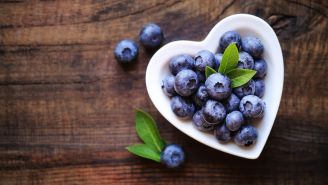
slideshow


video


video
